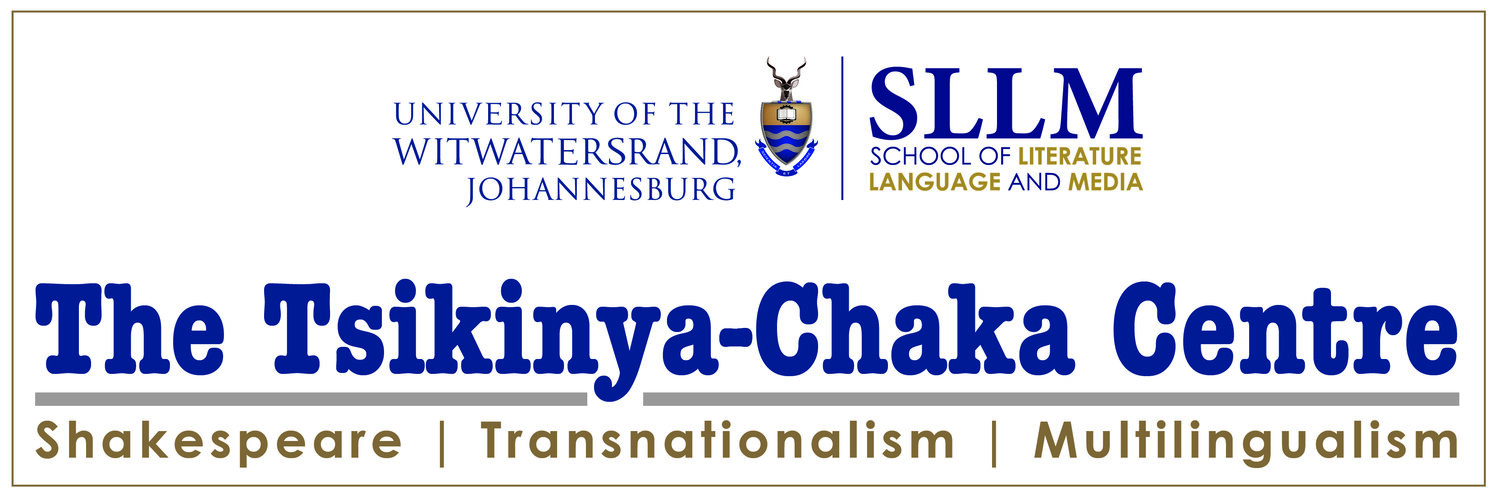Vision and mission
The Tsikinya-Chaka Centre supports researchers, teachers and arts practitioners whose work is informed by historical and/or contemporary translation, adaptation and appropriation – beyond the narrow confines of ‘English’ Shakespeare. It advocates for the consideration of these histories and current practices in arguments for or against Shakespeare’s presence on educational curricula at secondary and tertiary level, and in discussions about pedagogy: how Shakespeare is taught (if he is to be taught), and indeed what is taught with or through Shakespeare. The Centre emphasises and promotes Shakespeare in performance. It also digitises and curates textual archives of Shakespeare in translation, and publishes new translations.
In an era of closing borders and the ongoing threat of chauvinistic ethno-nationalism in many countries around the world, it is more urgent than ever to find ways of affirming transnational (‘global’) connections without dismissing the nuances of national (‘local’) contexts. A focus on language, translation and translanguaging via Shakespeare is one means of doing so. This multilingual emphasis also mitigates against the colonial biases infused into the notion of a ‘universal’ Shakespeare. To study Shakespeare as a global figure is to undertake a sustained confrontation with racism, elitism and even jingoism – both in the imperial processes of the last four centuries and in our contemporary moment.
The TCC is committed to:
- Producing innovative research at the intersection of Shakespeare, transnationalism and multilingualism
- Establishing connections between Wits and other South African universities
- Partnering with institutions and with scholars internationally
- Promoting multilingualism and translanguaging in teaching at schools and universities, as well as in Shakespearean performance
- Facilitating transnational exchange and cooperation between performing artists and scholars
- Supervising and teaching postgraduate students
- Seeking to inform education and arts policy development
- Maintaining a programme of public events, creative work and publication in non-specialist platforms to raise the profile of the research and practice undertaken by the TCC and its affiliates.





